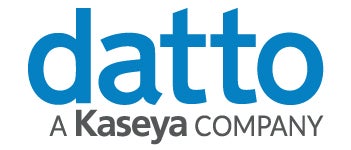
Data security and privacy are becoming more and more difficult to maintain in today’s varied cloud-based environments.
The volume of data being stored by enterprises in distributed, hybrid, and even unmanaged cloud settings is increasing the difficulty of maintaining regulatory compliance.
Anonymisation, which is a type of data encryption, is encouraged by privacy laws, such as GDPR. However, without a sound data governance programme, firms could struggle to comply with these privacy compliance requirements.
Managed service providers (MSPs) can allay these worries by offering independent third-party assurance, such as a System and Organisation Controls (SOC) 2 report, which can also help them keep one step ahead of the competition, while reducing the risk of data security and privacy.
SOCs for MSPs are audit reports created by a third-party auditor that demonstrate to firms they do business with that they adhere to the SOC’s strict requirements for data security and privacy.
SOC reports come in three varieties: SOC 1, SOC 2, and SOC 3. They aren’t upgrades of one another; rather, they are different kinds of reports.
SOC 1 concentrates on the financial reporting of a service provider, whereas SOC 2 and SOC 3 both examine a vendor’s security and data protection systems.
A SOC 2 report is internal and only accessible by the MSP and the company that is looking to work with it, while a SOC 3 report can be shared publicly.
Auditors do not express unqualified opinions in SOC reports. An absolute opinion, which is challenging to reach in light of the procedures carried out by auditors, would imply that there was no chance of a major breach.
History of SOC
The American Institute of CPAs (AICPA) developed SOC 2 for third-party cloud service providers and outsourced SaaS providers that receive, transmit and, most importantly, store a client’s data. SOC 2 is an auditing system that ensures cloud computing and SaaS providers securely manage data to safeguard both a business’s interests and the privacy of its customers.
SOC 2 isn’t only a technical assessment, though. In accordance with the five Trust Service Principles of security, availability, processing, integrity, confidentiality, and privacy, it also specifies stringent standards that MSPs must meet.
Key tenets of SOC 2 compliance
SOC 2 is referred to by some as a ‘certification’, but that is a loose description. A better one would be to call it an ‘attestation’ because, when a company claims to have robust security protocols in place, they have to have them checked by an independent and external auditor.
The auditor will analyse all such systems and processes in place to evaluate their robustness against SOC 2 standards and will then ‘attest’ to having examined them, and state they comply with requirements.
Designed for technology-driven service organisations, SOC 2 compliance helps establish audit controls related to data security, information availability, integrity, and confidentiality.
The benefits of following SOC 2 compliance are many, including an improved security posture, better IT governance, and controls, increased protection against data loss, and assurances to customers, insurers, and others.
There are several stages to achieve SOC 2 compliance, focusing on general IT controls that impact the following areas:
Security
This is the protection of data during its collection, use, processing, transmission, and storage. Additionally, it refers to safeguarding the information processing, transmission, and storage systems that enable the core organisation to achieve its objectives.
Availability
Customers require their cloud services to always be available and ready to use. SOC 2 assesses an MSP’s ability to maintain operations by looking at, among other things, protocols in place to deal with security-related issues and performance monitoring capabilities.
Data processing
The processing integrity principle examines whether an MSP’s platform is performing as intended by handling data that is authorised, complete, valid, accurate, and timely. In terms of processing integrity, the behaviour of the processing itself is more important than the integrity of the data, and its systems must operate without any glitches, delays, omissions, or unauthorised or unintended data tampering.
Confidentiality
The ability of an MSP to safeguard its own sensitive information, as well as that of its clients over the course of the data’s lifecycle and until its disposal is governed by the confidentiality principle. It differs from privacy in that privacy solely concerns itself with personal data. Contrarily, confidentiality is meant for information that a business needs to control, such as intellectual property, which may include personal information.
Privacy
Based on the company’s established data policies and the AICPA’s Generally Accepted Privacy Principles (GAPP), the MSP’s processing of Personal Identifiable Information (PII) is assessed according to the SOC 2 privacy principle. To safeguard PII data from unauthorised access, appropriate access restrictions must be in place, much like the confidentiality principle. This entails intelligently limiting access, certifying each device, and verifying each user.
Third-party services risks
According to the 2020 Cost of a Data Breach Report by the Ponemon Institute, an independent research organisation headquartered in the US, 53% of businesses surveyed had experienced one or more data breaches that were caused by a third party and cost an average of $7.5 million to rectify. Despite the fact that third-party SaaS service providers are now necessary, their information security might be easily jeopardised if the right controls aren’t in place.
Customer data security is not ensured by relying exclusively on data privacy laws like the GDPR or choosing MSPs that use reputable cloud service providers. If they haven’t been audited, you won’t know if they still don’t have the proper system control measures.
The effects of becoming involved in a third-party data compromise can be long-lasting. These occurrences, which frequently involve external parties, may be more difficult to identify, thus exposing businesses for longer. Each data breach costs $3.86 million on average, according to IBM’s 2020 Cost of a Data Breach Report, to cover detection, lost revenue, notification, and response.
The storage and processing of corporate and personal data in the cloud are rising exponentially, and the growing number of organisations that use the cloud as a repository need robust, secure, and always-on functionality of all its virtual services. Privacy and data handling regulations are becoming tougher across the globe, so it pays companies to partner with MSPs, third-party services, and SaaS platform vendors who can demonstrate and prove that their products are robust, and exceed governance standards.


